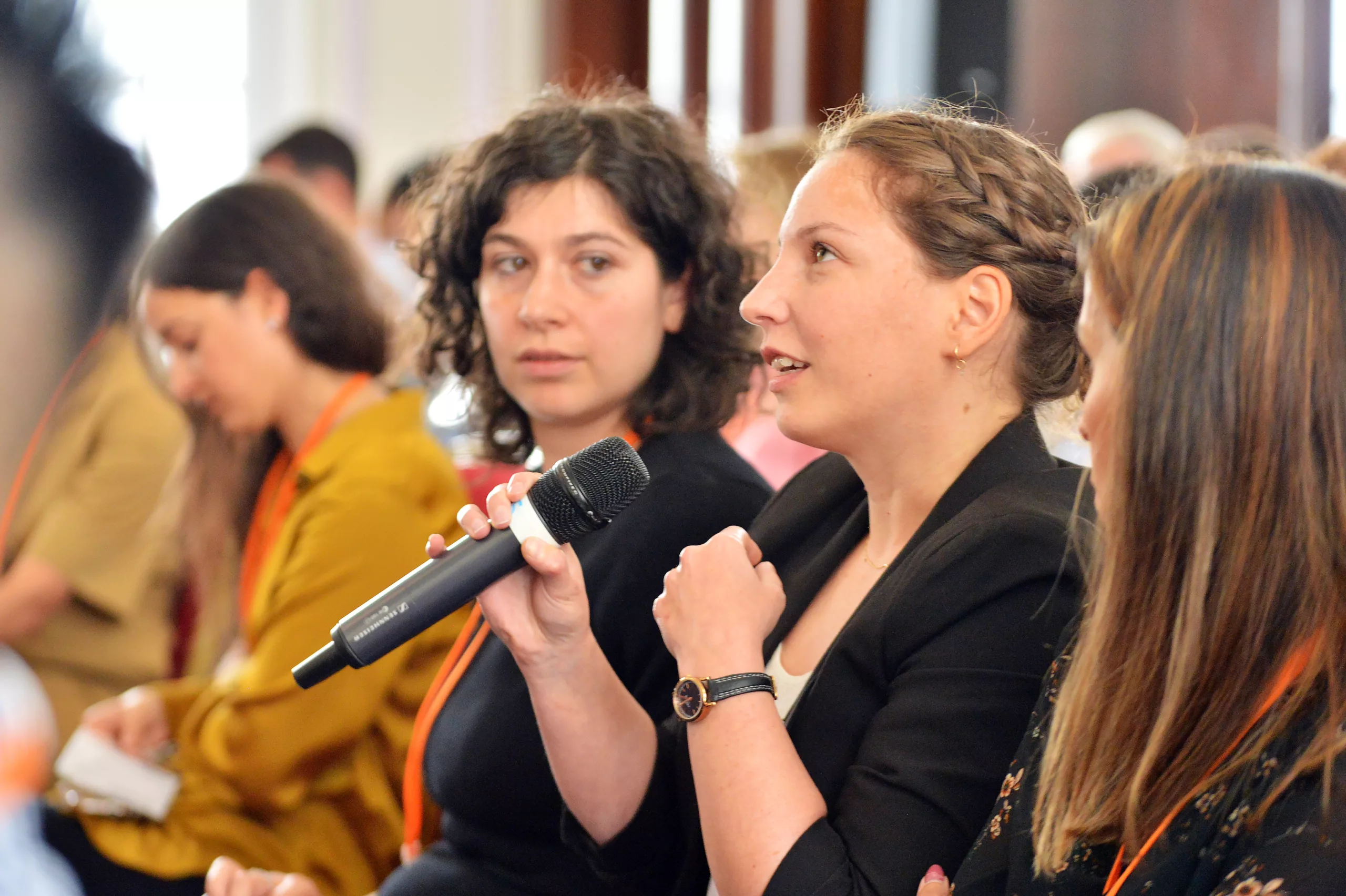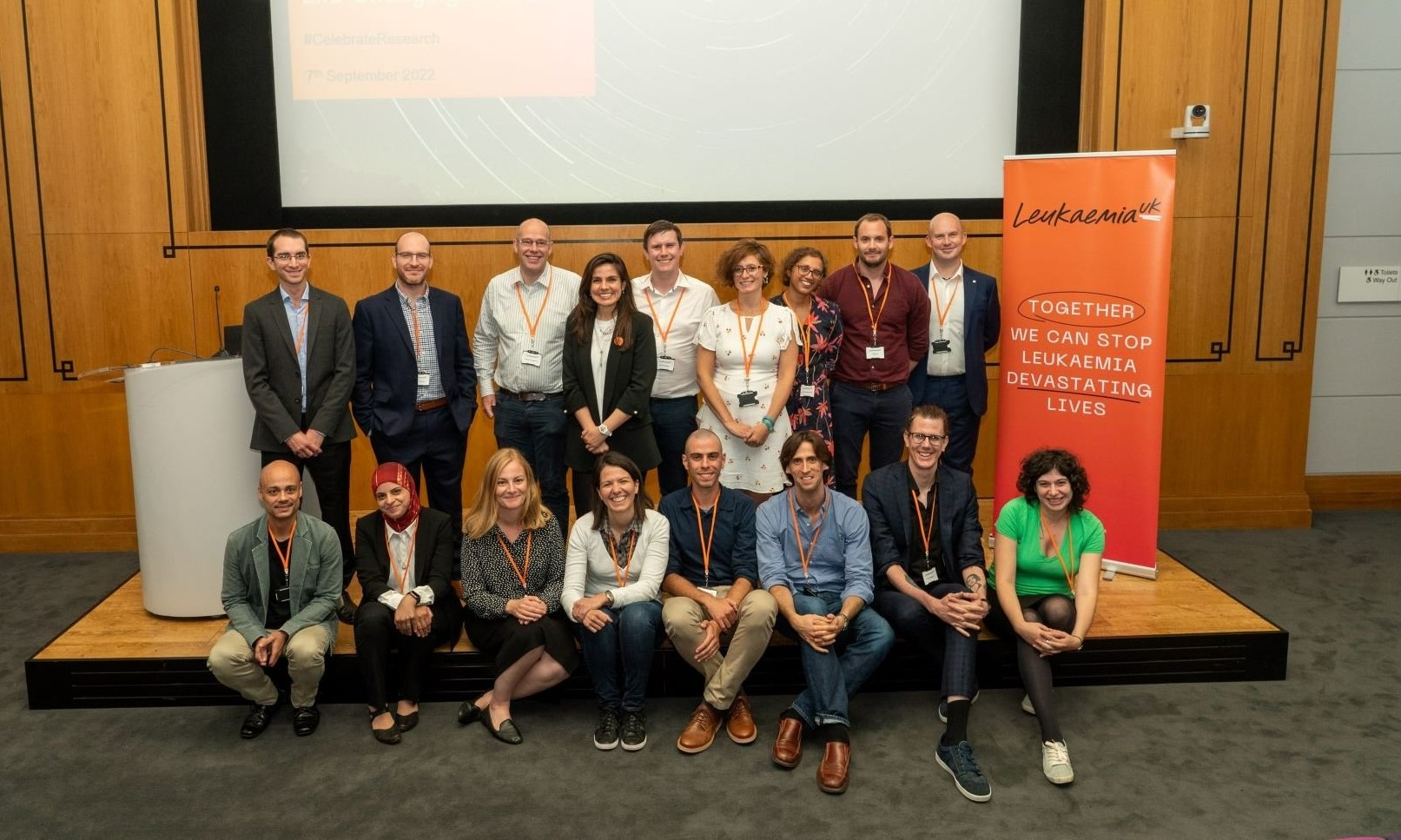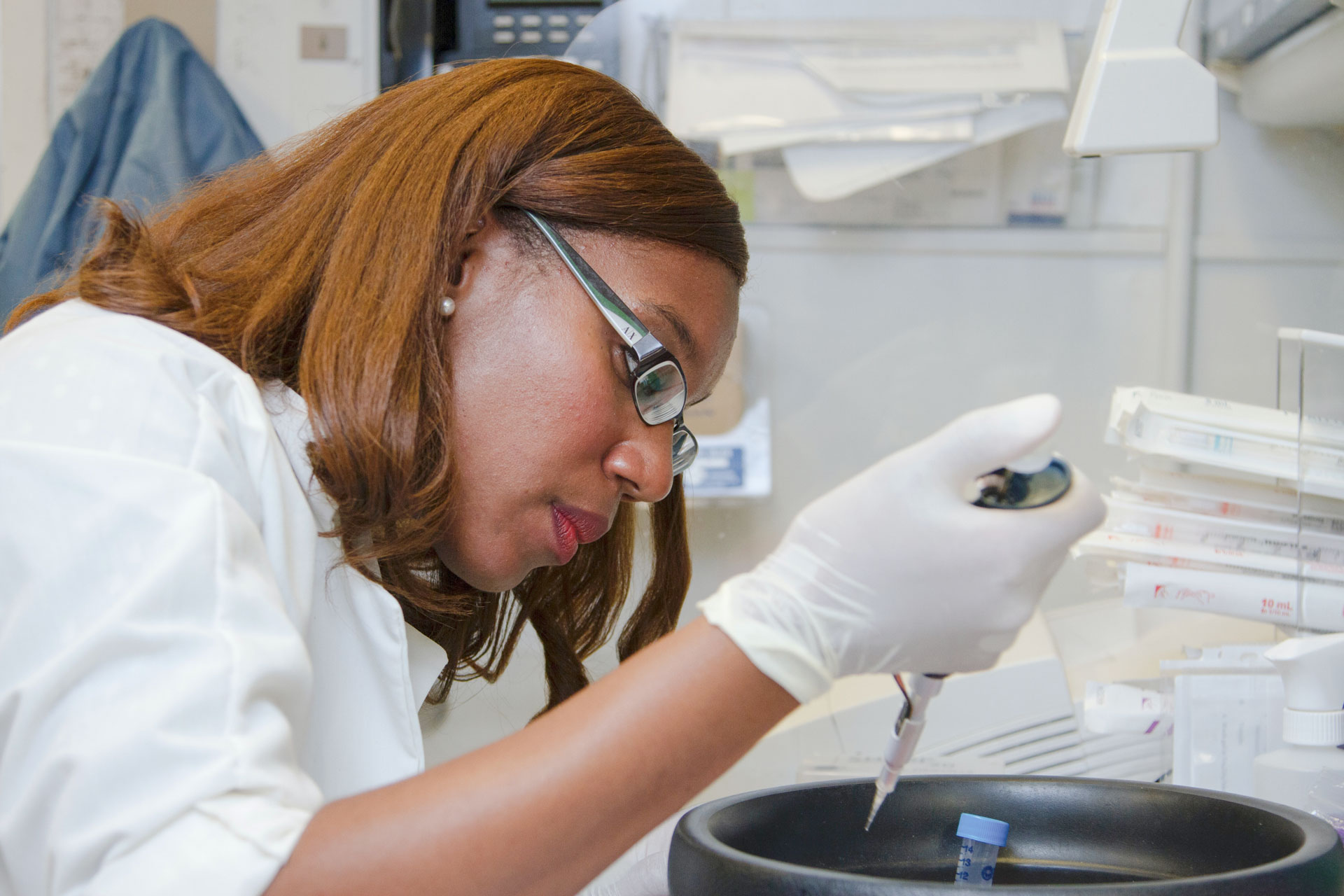John Goldman Fellowship Follow-up Fund
Our John Goldman Fellowship Follow-up Fund enables our previous John Goldman Fellows to develop their research groups and further establish their careers, to help accelerate progress in leukaemia research.

Leukaemia UK continues to invest in research leaders of the future though John Goldman Fellowship Follow-up Funding
In 2015, we developed our John Goldman Fellowship (JGF) programme aimed at early career scientists and clinicians. The fellowships were established to accelerate progress in leukaemia research by overcoming two recognised stumbling blocks in a researcher’s career progression: securing funding for a novel research idea and the transition from being a post-doctoral researcher to becoming a completely independent investigator.
We are now committed to going one step further. By continuing our investment in those who we consider to be the UK’s future research leaders in leukaemia and related disorders, we hope to make further advances in our knowledge of leukaemia and ultimately translate scientific advances into clinical practice. We are delighted to offer JGF Follow-up Funding to our previous John Goldman Fellows, helping them to develop their research groups and further establish their careers, whilst also supporting Leukaemia UK’s mission to fund research that can stop leukaemia devastating lives. We believe that by providing Follow-up Funding specifically to previous John Goldman Fellows, Leukaemia UK can provide a clear pathway by which early-career researchers in leukaemia and related diseases can progress all the way from being post-doctoral researchers to senior group leaders and full professors.
Leukaemia UK’s Follow-up Fund will fund only novel, clearly defined projects, and will not financially supplement existing research projects.
Successful applications must be able to demonstrate:
- An innovative research project idea
- Scientific excellence
- The potential for high scientific and/or clinical impact
Who can apply?
Applications are invited only from previously funded Leukaemia UK John Goldman Fellows.

Application process
Applications for the 2025 John Goldman Fellowship Follow-up Fund will open on 02 June 2025, with a submission deadline of midday on 31 July 2025. All applicants will be contacted with the outcome of their applications on or by 19 December 2025.
Applications are invited from previously funded Leukaemia UK John Goldman Fellows, who must meet both of the following criteria:
- The original Fellowship must be complete, or soon to complete. In addition, the completion date must be no more than three years prior to the current application deadline. I.e., completion on or after 31 July 2022 for the 2025 round of John Goldman Fellowship Follow-up Funding
- The Fellow has not previously received JGF Follow-up Funding
Previously unsuccessful applicants for JGF Follow-up Funding are eligible to re-apply, provided that they also still meet the eligibility criteria listed above.
Applications must be submitted via the Leukaemia UK Funding Management System. In order to submit an application, applicants are required to register for an account in the Leukaemia UK Funding Management System, as are the applicant’s Head of Department, Institutional Finance Approver and any Co-applicants, all of whom are also required to approve the application prior to the submission deadline. We therefore suggest that applicants begin their applications as soon as possible, to avoid any delays with the submission process. Applications can be saved in the system and updated at any time prior to the submission deadline. A detailed user guide is available.
Please also read our full JGF Follow-up Fund guidance and Terms and Conditions before starting your application.
We funded:
- one (of five) JGF Follow-up Fund applications in 2024
- one (of four) JGF Follow-up Fund applications in 2023
- one (of 14) JGF Follow-up Fund applications in 2022*
*The eligibility criteria for John Goldman Fellowship Follow-up Funding changed to the current criteria after 2022.
If you have any questions or queries regarding Leukaemia UK’s John Goldman Fellowship Follow-up Funding, please email our Research Manager, Dr Tom Simpson.

